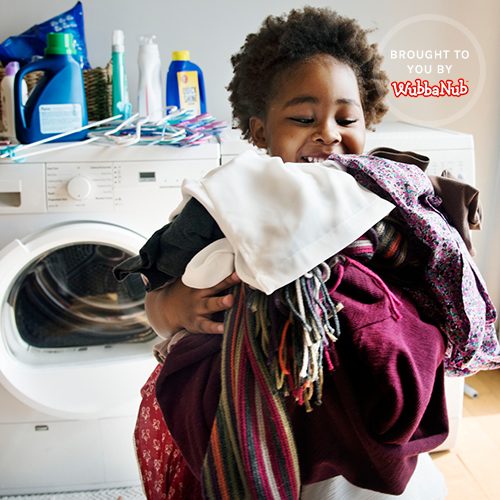It’s tough, let’s be honest. As much as we need help around the house, we also want to spoil our kids and teaching them to do chores takes way longer than just doing it ourselves. However, giving kids chores and things to do around the house allows them to feel like productive members of the family as well as offering them boundaries and structure that they need in order to thrive. But when and how do you start the process? What are age appropriate chores? And what are the long term benefits to children engaging in household obligations young?
Getting Started

As early as two children can start to understand rules and expected behaviors, such as “please” and “thank you” and other manners. Around this time is when parents can introduce things as simple as picking up your toys or taking dishes back to the kitchen after meals. Instead of treating it like a task, give it the feel of a game. If your child’s room is covered with toys don’t simply put them away yourself, sit down with your toddler, pick up a toy, and ask “where does this go?” your child will likely take ownership of organizing (even if it’s not quite how the room is normally set up) and if not, give two options: does the toy go in the cubby or in the chest? Children learn lots of social norms through play and the act of repetition is what will help establish this a daily game while also giving your child a chance to mimic grown up behavior.
Keep It Going

One thing to keep in mind when introducing chores to your kids is to be consistent. Whether it’s a daily task or every other day make sure when you establish a routine, you stick to it. Yes, it will take a bit longer to coach your child through each chore but ultimately it will be worth it. Cognitively, children can grasp the concept of responsibilities much earlier than parents may think, and in doing so not only establishes their value in the family, but being given consistent tasks to do also sets boundaries letting children know they are not in charge of the household which brings a sense of security that they are being taken care of.
As children get older you can start adding new chores to their repertoire. They should still be responsible for picking up after themselves, but they can also participate in some larger chores in the house. Maybe that means raking up leaves in the yard, helping wash the car anything that is more active is likely to be more interesting to children and engage them more. Also, keep in mind it’s not about perfection, you may luck out with a kid who likes everything neat and tidy, but the primary point here is actually about teaching your child self-worth and mindfulness.
Reward System

While it will likely be a few years before you have to figure out how to establish an allowance system, it is important to make a show when your children complete their tasks. Just as you are their cheerleader when they hit developmental milestones, completing chores is a societal milestone and it will only improve their self-esteem and likelihood that they will repeat these behaviors if encouraged. Again, the goal is not to have a perfectly clean room but to establish expectations early on that will help your child develop and understand social responsibility.
